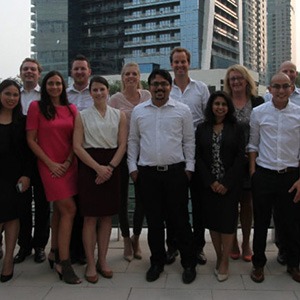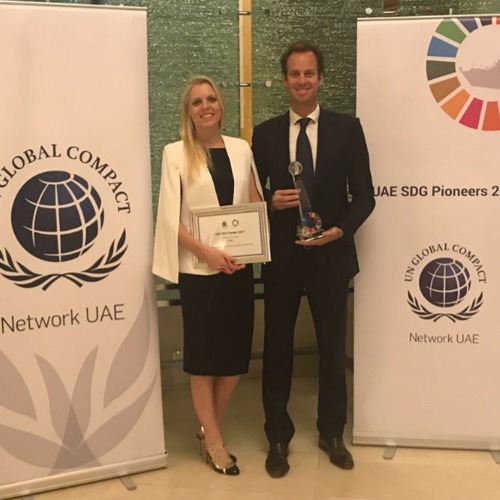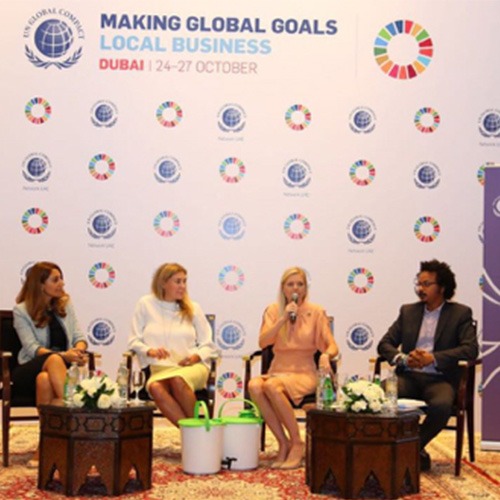5 Inspirational Women Pioneering For Peace
In the midst of continued terrorist attacks and bombings in Somalia, a growing migrant crisis in Libya, and a projected “de-development” trajectory in Gaza, peace seems like a distant goal.
This year International Day Of Peace celebrates the 70th anniversary of the Universal Declaration of Human Rights with the theme “The Right To Peace”, making it not only a day to reflect on the progress we’ve made towards promoting peaceful and inclusive societies for all, but an important day that highlights the question, “What does ‘The Right to Peace’ mean for people in conflict and developing nations around the world?”.
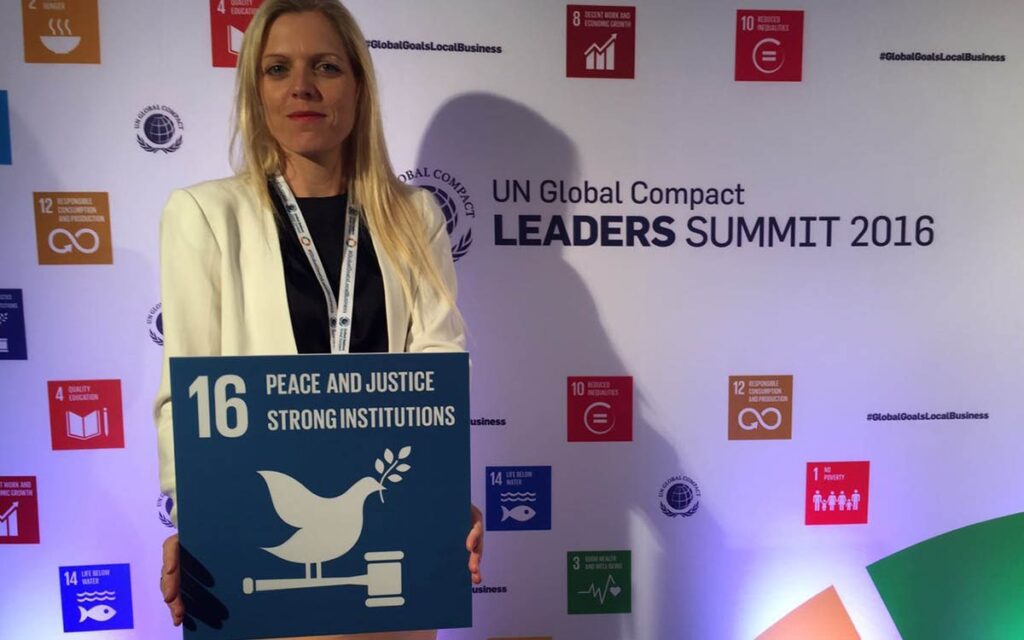
In 2015, the United Nations adopted the 17 Sustainable Development Goals (SDGs) as a universal call to action to build a peaceful society for all people, everywhere. SDG 16, titled Peace, Justice and Strong Institutions, is one of the development goals CTG has committed to making a reality and delivering to the countries in which we operate. The goal calls for promoting peaceful and inclusive societies for sustainable development, providing access to justice for all and building effective, accountable and inclusive institutions at all levels.
Extraordinary women around the globe are making strides in the fight for equality, access to justice and peace for all, often at great risk to their lives and to that of their families. In this blog we’ve chosen four women who are peace agents, making a transformative impact on lives around the world despite the challenges. Peace is possible but to achieve it women must be part of the conversation.
1. IMAN AND ILWAD ELMAN

Iman and Ilwad are Somali-Canadian social activists advocating for peace, human rights and women’s equality. The sisters fight on the front lines for Somalia in their own way, Iman as a CTG Account Manager and off-duty military officer within the Somali National Army, and Ilwad as the co-founder of the Elman Peace and Human Rights Centre, which includes the first rape crisis centre for survivors of sexual and gender-based violence in Somalia. In 2018, CTG Giving donated a grant towards the female entrepreneurship programme at the Centre.
The peacekeepers fled Somalia with their mother Fartuun when the war had taken a turn for the worst. In 2010, when Ilwad and Iman returned to Mogadishu from Canada, where they were raised, Al Shabab controlled most of the city. Eight years later, while the Al Qaeda group still has a strong, covert presence and the ability to launch attacks — such as the double suicide car bomb in April which left 4 Ugandan soldiers dead — the capital is no longer a war zone.
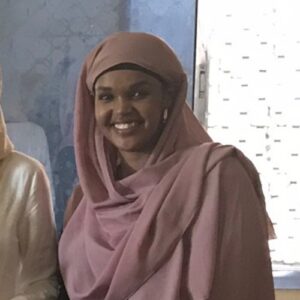
Iman, who has served as the Director of External Affairs at the Ministry of Internal Security in Somalia, smashed stereotypes when she joined the military in 2011, becoming a female commander at 21, charging a predominantly male force. Her unit’s work was among the army’s most dangerous and included searching for Al-Shabab. Today, Iman is CTG’s Head of Programmes and Security in Somalia.
The right to peace to me means the betterment of the lives of all individuals and the opportunity to live a life without oppression and exploitation. I truly believe societies can create a culture of peace through tolerance and acceptance of others. By adhering to a core value of respect for all life, developing nations will be able to achieve a sustainable future for all.
– Iman Elman.
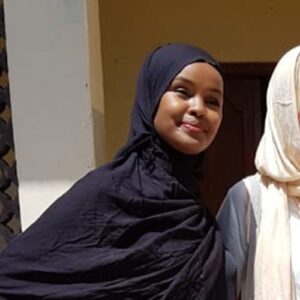 As Director of Programmes and Development at the Elman Peace and Human Rights Centre, Ilwad designs interventions aimed at security sector reform to create an inclusive space for women in peace building. She also develops programmes for the disarmament, rehabilitation and reintegration of young women and men defecting from armed groups. Outside of Elman Peace, Ilwad advocates for the Kofi Annan initiative called Extremely Together, where she and nine other youth leaders are countering violent extremism by inspiring, engaging and mobilizing youth globally. She has served as the One Young World Ambassador to Somalia since 2013; completed President Barrack Obama’s flagship White House fellowship for Young African Leaders in 2014 and in the same year was appointed Youth Ambassador to Somalia for Ending Sexual Violence in Conflict.
As Director of Programmes and Development at the Elman Peace and Human Rights Centre, Ilwad designs interventions aimed at security sector reform to create an inclusive space for women in peace building. She also develops programmes for the disarmament, rehabilitation and reintegration of young women and men defecting from armed groups. Outside of Elman Peace, Ilwad advocates for the Kofi Annan initiative called Extremely Together, where she and nine other youth leaders are countering violent extremism by inspiring, engaging and mobilizing youth globally. She has served as the One Young World Ambassador to Somalia since 2013; completed President Barrack Obama’s flagship White House fellowship for Young African Leaders in 2014 and in the same year was appointed Youth Ambassador to Somalia for Ending Sexual Violence in Conflict.
Mogadishu was recently raked as one of the fifth worst places in the world to be a woman. women. I feel that by being here today at the rebirth of Mogadishu very soon we will see this place ranked as something else, perhaps the most beautiful place in the world. And then one day perhaps I’ll be able to say ‘I had something to do with that even if it was little.’
– Ilwad Elman.
2. MALALA YOUSAFZAI
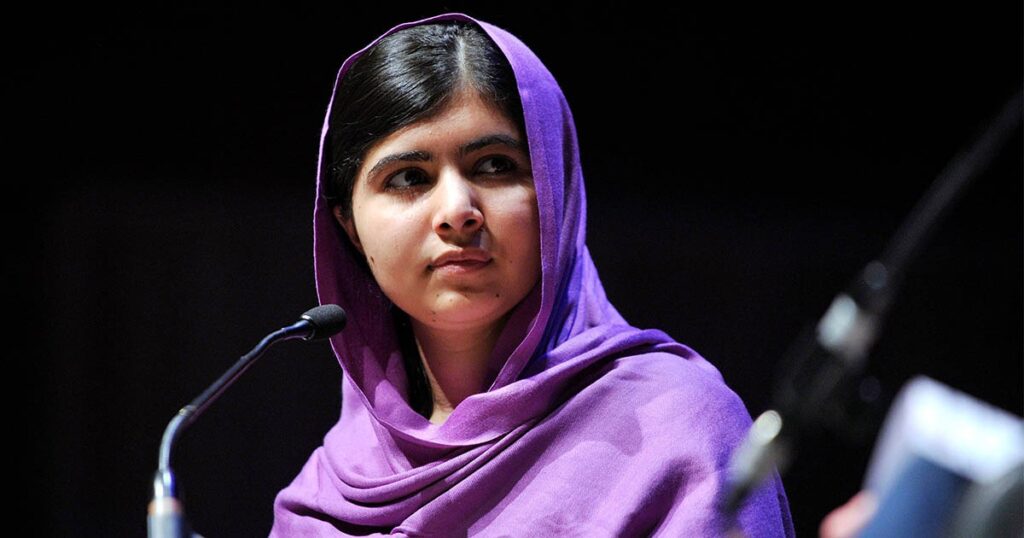
In 2009, Malala wrote a blog post for BBC Urdu titled “Diary of a Pakistani Schoolgirl” detailing her life during the Taliban occupation of Swat. This would be the start of her uphill battle advocating for the greater education of girls, which ultimately led to masked Taliban gunmen flagging down her school bus in 2012 and shooting her in the head. Her miraculous recovery, and relentless pioneering for women’s empowerment, led Malala to become the youngest Nobel Peace laureate.
In 2012, Malala, in conjunction with her father, started the Malala Fund a charity dedicated to ensuring 12 years of free, safe, quality education to every girl. Malala travels to countries to meet girls fighting poverty, wars, child marriage and gender discrimination in order to go to school and ensures that their stories can be heard around the world. Malala is a global symbol of the resilience of women in the face of oppression.
I tell my story not because it’s unique, but because it’s the it is the story of many girls.
– Malala Yousafzai
3. RULA GHANI
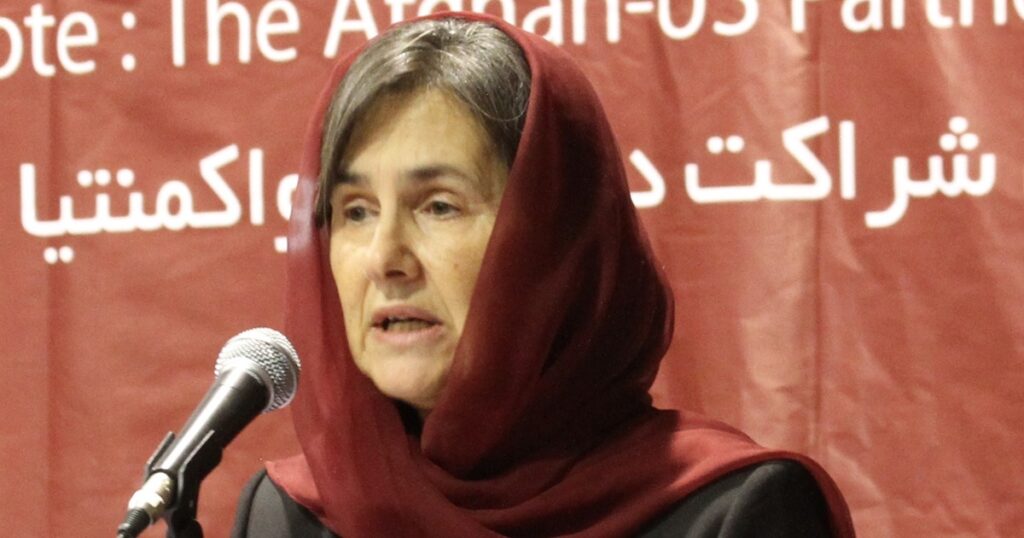
Afghan First Lady Rula Ghani has long been an advocate for expanding the rights and opportunities for women in Afghanistan. Her mission fostering peace efforts for women has led her to be named in the Time 100, a list of the world’s most influential people, by Time magazine.
Afghanistan has been at war for more than 14 years, and although the Taliban rule officially ended in 2001, women’s literacy is among the lowest in the world (around 24 percent), women and girls face many forms of violence including torture, rape and child marriage, and it remains taboo for an Afghan woman to be seen in public without a burqa. As First Lady, Ghani is leading the charge on women’s rights, and believes that the only way to achieve peace is by changing the minds and culture of the people. She views Afghan women as agents of peace in Afghanistan.
I don’t think it [women’s empowerment] is just a political issue. Women are human beings like men, and as such they deserve respect like men do. They have rights like men do. And it’s actually bringing them out of obscurity, out of the corner in which they have been relegated, especially during the last decade of the 20th century. It’s not that I’m doing much. I’m just opening a door. And they are ready.
– Rula Ghani.
4. ZAINAB SALBI

In 2016, People Magazine named her as one of “25 Women Changing The World”. Zainab Salbi is a peace agent in her own right, and through her foundation, Women for Women International, a grassroots humanitarian and development organisation, Salbi is providing women survivors of wars the support, tools and skills they need to transition from crisis and poverty to stability and economic self-sufficiency.
Originally from Baghdad, Iraq, Zainab is the daughter of former Iraqi president Saddam Hussein’s personal pilot. At 23, after hearing about the atrocities women were experiencing in rape camps around the world, she travelled to Bosnia, a country she had never visited before, in the hopes of generating a positive change for women living in countries affected by war.
Some twenty years later, and her foundation, Women for Women, assists more than 400 000 women in conflict areas across the globe. Their year-long programmes, which consist of learning economic and social empowerment skills, enable women to earn and save money, improve health and well-being, and influence decisions in their home and community.
By accepting what the external structures have told us we need to do, we have given the power of our realities and ourselves to others. It is time to tell a new story for women, and that can only start with women.
– Zainab Salbi.
Find out more about how CTG CEO Alice Laugher is championing peace through the Sustainable Development Goals.
